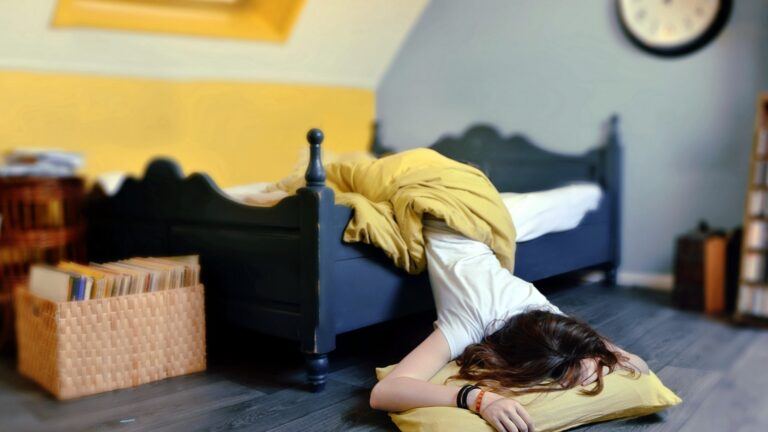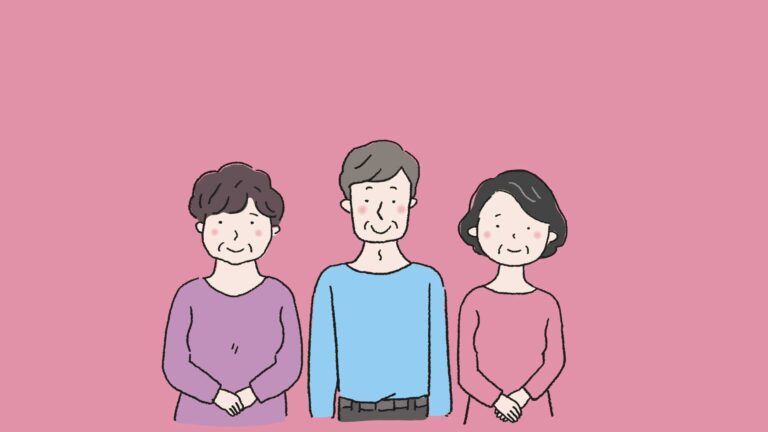Anxiety vs. Bad Sleep. Causes or Consequences?
Anxiety has a very close relationship with sleep. That is why we say that we cannot sleep because we are thinking about something else.
We usually lie down, ready to sleep, and what happens?
Our body temperature drops, the heartbeat slows down, the breathing goes deeper, and the brain begins to “shut down”. When we are anxious, everything is affected: our breathing is fast and shallow, our heartbeat is fast, our mind is invaded by thoughts, we are tired and impatient to sleep.
It is not necessary to have an anxiety disorder diagnosed to feel the impact that stress and worry have on sleep!
So, which comes first, anxiety or sleep disorder? This relationship is bidirectional.
- Sleep problems can cause anxiety, and anxiety can disrupt sleep.
- Sleep problems can affect you, your emotions, relationships, your physical and mental well-being.
- The sleep disorder can put you at risk of losing your job;
- have poor academic performance,
- higher risk of accidents
- heart problems, hypertension, stroke, and diabetes.
That is: anxiety, affects a good night’s sleep. A bad night’s sleep affects anxiety. Both worsen each other and can even become a vicious and unhealthy circle for the person’s personal and professional life.
Of course, not everyone anxious has insomnia, and not everyone who is insomniac suffers from anxiety, but the profile of people with these tendencies is usually similar, they are more demanding, controlling, perfectionists. They are usually the ones who want to take care of everything and when they can’t, they take the problems to bed.
Why are there more and more people with sleep disorders?
Various causes. The most common: we are exposed to artificial lights until more and more later.
Computer – to study or work late. Television – we fall asleep watching our program, we think we are sleepy, but when we wake up again, we have the energy to clean the whole house.
And who does not like to take the last look at their cell phone and social media before bed?
All these factors provide the opposite message to our body – we need to sleep, but we are waking up the brain.
Working late to work harder is a myth!
Less rest = Less productivity
The hours of sleep needed are subjective but strict. Sleeping less than 4 hours and more than 11 hours is not beneficial.
In addition to all the physical consequences to which we are exposed because our organism does not perform its complete work during the night, the psychological consequences will come. And not only! Insomnia is directly related to the increase in cortisol, and this decreases substances such as cytokines, related to defense. So poor sleep is associated with decreased immunity.
Not sleeping can result in the “shutdown” of the medial prefrontal cortex, a region that helps to keep our anxiety under control. Besides, they realized that the deepest emotional centers in the brain were noticeably more active.
In contrast, tests done after a good night’s sleep have shown that anxiety levels have decreased significantly, thanks to the brain waves that pass through the nervous system when we are asleep. Deep sleep restores the brain’s prefrontal mechanism that regulates our emotions, decreasing emotional and physiological reactivity and preventing increased anxiety.
Of course, all this suffering has worsened with the pandemic! … Why?
Lack of routine and fear are the main items that have contributed to the increase in insomnia. We need to wake up and receive daylight and, at night, with the decrease of light, we release our melatonin (sleep hormone). People, staying more at home, have no time to wake up or sleep. On the contrary, they end up sleeping more in the morning and, at night, are watching TV or using cell phones, tablets, etc., which impairs the rhythm of sleep.
The space at home meant to rest. And since a year ago, we had to re-educate him for rest, and for work, which also ends up confusing the brain about when to wake up and when to calm down.
But then …
How to treat?
If bad nights, for whatever reason, occur more than three times a week for several months, the patient suffers from chronic insomnia. After talking to your doctor about your sleep disorder, they can refer you to a sleep clinic for more information.
Some current habits can help to sleep better:
Have good sleep hygiene (sleep in a quiet place, have fixed times)
Avoid stimulating substances at night (coffee, alcohol, cigarettes)
Only eat heavy foods until two hours before bed. Complete meals alter metabolism and influence sleep. If you’re hungry, choose something light like fruit
Perform physical exercise (up to two hours before bed)
Create a good environment (dark, calm)
Taking a good hot bath before bed can help calm you down
Do not use electronic devices 40 minutes before bed (instead, read a book)
If you don’t sleep in half an hour, get up. Do a more monotonous activity, like reading a book, to make yourself drowsy. Do not return to the room until sleep appears. By spending a lot of time in bed without sleep and irritation, you can teach the brain that the mattress is not a place of relaxation, but stress. Once that connection is established, it becomes even more difficult to sleep there.
If the problem persists, contacting a specialist doctor is the best option
N.D. (2020). SLEEP FOUNDATION: A OneCare Media Company [Online]. Available at: https://www.sleepfoundation.org/mental-health/anxiety-and-sleep (accessed April 15th, 2021).







